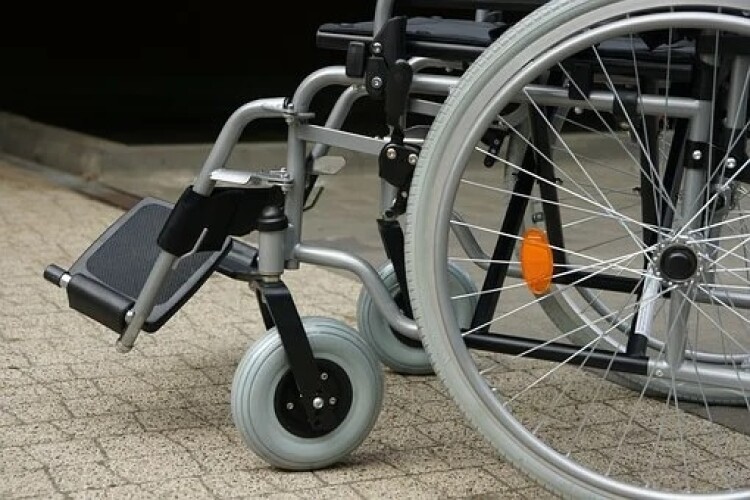[ad_1]

A logjam in dwelling advancement do the job has been exposed by the Bureau of Investigative Journalism – but the cause is not the creating trade but the administration of the Disabled Services Grant (DFG) process.
DFG is the grant scheme to aid fund diversifications to disabled people’s houses, increase accessibility and assist impartial living. Federal government principles mandate that variations are permitted and completed within just a greatest of 18 months in England and Wales after a council has been given an application form, but this does not involve the time taken to protected an official needs evaluation that will have to accompany apps.
Information collected from Freedom of Data requests despatched to all Uk regional authorities and the Northern Ireland Housing Executive (NIHE) revealed that the time taken to finish variations differs randomly from council to council. Some full evaluation in days others take months.
In Salford, for instance, the normal wait for a desires assessment is eight months. In Manchester it is 7 months and Solihull six-and-a-half. Aspect in the time taken to then approach the application, get the builders in and do the work, the delays stack up.
As councils are only expected to report the common waiting periods, the info indicates that disabled men and women could effortlessly be ready two to three many years for the alterations that make their assets a liveable property – this sort of as obtainable kitchen and showering amenities.
Fazilet Hadi, head of coverage at Disability Legal rights United kingdom, advised the Bureau: “The latest delays in the method are getting a devastating influence on the lives of Disabled folks and their families. Most folks consider bathing, cooking, and other every day routines for granted, yet we are creating disabled people today hold out months and years for standard alterations to our houses, which would empower us to reside independently and securely.”
Local authorities have discretionary powers to top up the DFG amount for each applicant. The statutory most amount of money an applicant can acquire as a DFG is £30,000 in England, £36,000 in Wales, and £25,000 in Northern Ireland. The British isles federal government is considering boosting the upper limit.
The investigation uncovered that nearly 80% of community authorities in England leading up the most DFG amount. Some give a different £30,000, other extra. Manchester City Council can offer you up to £70,000, citing the rise in the value of developing elements as a single rationale for the important boost to its grant award. In some locations, the prime-up is a grant in many, it is a personal loan.
The Department for Levelling Up, Housing and Communities claimed: “It is very important disabled men and women are fully supported with diversifications and improvements, so they are snug and safe in their properties. Because 2010, we have provided councils with extra than £4bn to provide around 50 % a million dwelling variations and an specialist entire body is on hand to assistance any council minimize backlogs, so older and disabled people can reside independently and properly.
“We appreciate the problems councils have faced to provide these grants through the pandemic, but it is now vital that diversifications are sent at speed and the backlog on ready lists decreased.”
The Welsh federal government claimed it experienced offered an more £1m to nearby authorities for diversifications in the 2021/22 economic yr and programs to boost it once again.
Several councils advised reporters that they ended up battling to recruit and educate sufficient occupational therapists to present fast assessments. They also available the pandemic as a rationale for delays in accessing homes for assessments and creating function.
Nevertheless, at the coronary heart of the housing crisis for disabled people today, campaigners say, is an historic lack of qualities across the Uk with acceptable obtain. The 2021 National Disability Strategy recognised that fewer than 50 % of the nearby strategies in England for new residences incorporate specifications for a proportion of new homes to satisfy increased accessibility benchmarks.
Christina McGill, interim director of technique and exterior affairs at Habinteg, a housing association that has prioritised accessible households, mentioned: “Just 9% of houses in England deliver even the most standard accessibility characteristics. That’s why Habinteg is contacting for changes to constructing laws to lift up the minimal requirement to the ‘accessible and adaptable’ standard and for all nearby ideas to involve a proportion of new houses to be created to meet up with the daily residing desires of wheelchair buyers.”
Acquired a tale? E mail [email protected] kingdom
[ad_2]
Source backlink






